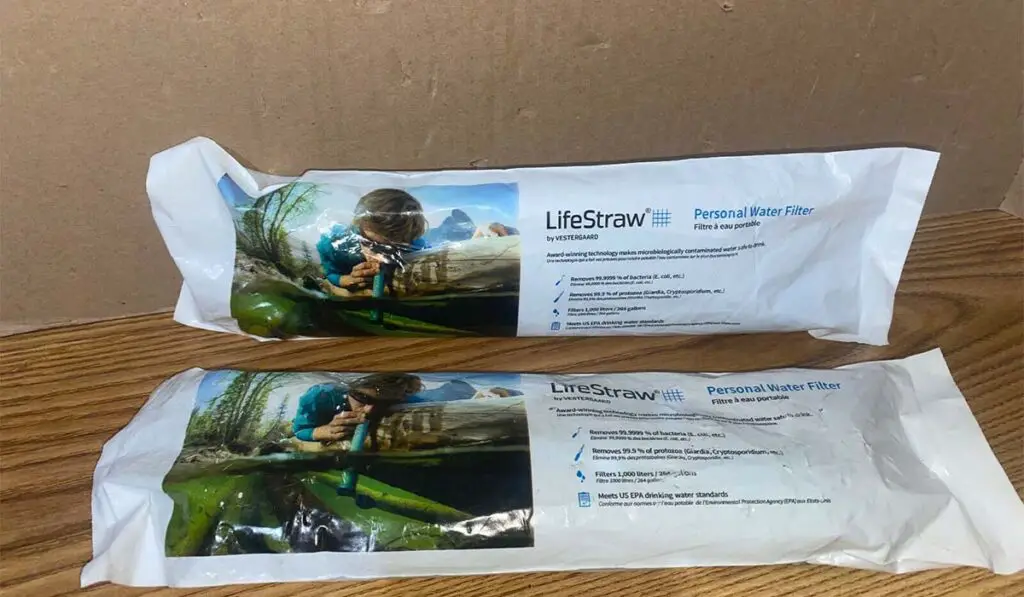LifeStraw is an impressive brand of water purification and filtration. Everyone deserves access to clean drinking water, and this device can filter out many chemicals and bacteria to ensure safe drinking water for the person using it. What about pool water, though — is it safe to use the LifeStraw with that?
LifeStraw doesn’t recommend using the system to drink pool water. Although there are versions of the product that filter out chlorine and saltwater, there are many other things in your pool that LifeStraw may miss. Nonetheless, in an emergency, LifeStraw will at least remove most bacteria present.
If you’ve been wondering whether LifeStraw can help you out in a dire situation where your pool is the only water source, you should familiarize yourself with what LifeStraw can and can’t filter out. Let’s take a closer look at how LifeStraw works and what it’ll do to pool water.
Will LifeStraw Filter Chlorine?

The regular LifeStraw (on Amazon) can’t filter out chlorine, so that’s something to bear in mind. Chlorine usually doesn’t cause a person harm if consumed in small quantities (such as an accidental mouthful in the pool), but it’s probably not a good idea to fill a flask with pool water and drink the whole thing — not even through a LifeStraw.
However, the LifeStraw Go Stainless Steel (on Amazon) has an extra carbon filter that helps it to remove chemicals such as chlorine.
Can a LifeStraw Filter Out Pool Bacteria and Chemicals?
There are so many things that could be present in a pool that it’s impossible to say how much of it the regular LifeStraw can filter out in terms of chemicals.
However, it should be able to get rid of most of the bacteria. The two-step filtration process of the LifeStraw means that most particles will be caught in the filter. If the water still tastes bad to you, make sure you’ve properly cleaned the LifeStraw.
Although the company doesn’t recommend using the LifeStraw to drink your pool water, if you have to in a pinch, you should definitely use the LifeStraw Go. Carbon filtration means it can get rid of the chlorine as well as any pesticides, and if you have a saltwater pool, it will filter that out too.
It’s also important to ensure your pool has been regularly maintained if you’re ever going to do this. If you haven’t cleaned the pool in a while or there are visible algae in it, there’s much more of a chance of something being in there that can slip through LifeStraw’s filtration system.
Pools have almost infinite bacteria and chemicals that they collect from both humans and wildlife, and although LifeStraw should catch most of it, there’s no guarantee. There is, however, a better chance of the water being drinkable if you clean your pool.
So at the end of the day, regardless of the situation, you’re better off finding another water source to use your LifeStraw on.
Can a LifeStraw Filter Saltwater?
A regular LifeStraw also can’t filter out saltwater. Although many people believe that drinking saltwater isn’t bad for them because humans consume both salt and water, this isn’t the case for two reasons.
The first is that saltwater produces its own chlorine and, again, in high quantities, chlorine isn’t good for you. Those with respiratory diseases may be particularly susceptible to its effects, so it’s important to be careful if you suffer from any.
The second is that saltwater simply has more salt than any human should consume! It can be bad for your insides and even cancel out a lot of the hydrating effects of the water because there’s so much of it.
Just like with chlorine, however, the LifeStraw Go’s extra carbon filter can filter the salt out of water.
